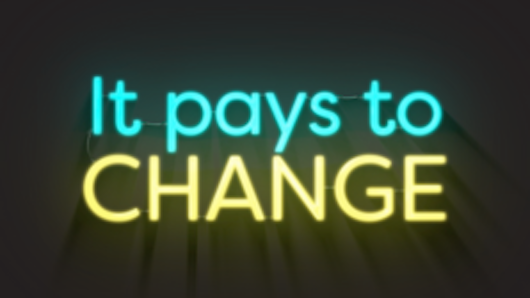
By Vanessa Pratley
Investigative Journalist | Kaipūrongo Whakatewhatewha
Electricity is an essential service that all Kiwi households should have equal access to. But sometimes, things go wrong. You might struggle to pay your bill, or your electricity might be disconnected unexpectedly. We explain new rules and how they affect your rights.

In 2021, the Electricity Authority (EA), the electricity market regulator, released its Consumer Care Guidelines. The guidelines operated as a minimum code of conduct for power companies when working with consumers.
The guidelines, now called Consumer Care Obligations, are mandatory from 1 April 2025. Here’s how the new obligations impact your rights.
A consumer care policy
Your power company should have a consumer care policy. This policy must be easy to access on the power company’s website. If it isn’t, you can request a copy.
You might find it by looking for information about vulnerable or medically dependent consumers. Don’t be fooled – the obligations are for all consumers.
If you think your power company isn’t complying with its consumer care policy, you can complain to the power company or to Utilities Disputes Limited (UDL). UDL is an independent dispute resolution scheme that deals with disputes about electricity and gas, water services and broadband installation. For more information on how to lodge a complaint, see Complain to Utilities Disputes below.
Signing up
Under the obligations, a power company:
must provide you with information about itself and its power plans so you can make the best choice when signing up for electricity
should make sure you’re aware of and understand the terms and conditions of its contracts
should explain the risks and benefits of each plan, especially pre-pay plans.
When you sign up, a power company might turn you down. If it does, it must:
let you know why it decided not to enter into a contract with you
give you information on ways you can access support and where you can find more information on other power companies, like through our Powerswitch service.
If you think you’ve been wrongfully turned down or the power company won’t give you a reason for doing so, you can complain to UDL – even if you’re not a current customer.
Communication and privacy

You can nominate an alternate contact person as well as a support person who can advocate on your behalf. Let your power company know how to get in touch with your alternate contact or support person. Your power company will need to make sure your contact or support person is OK with acting in this role and that their contact details are correct.
Your power company should talk with you at least once a year. It should make sure you’re on the right plan for you and that any information it holds about you is still correct, for example, your contact details or billing preferences. It should also remind you about its consumer care policy.
Your power company must follow New Zealand’s privacy laws. You have the right to request any information the power company holds about you and your electricity usage. The company must provide this information within five business days.
Each power company will have a different privacy policy. The policy will outline what information the company collects and how it stores the information, so you should become familiar with it.
Billing and fees
Your power company should be upfront about costs. Information about what and how it charges you should be available in its consumer care policy, but you’ll also likely find it in your contract.
Your bills should be clear and easy to understand. And they should be broken down so it’s easy to tell what each amount is for. Due dates and any overdue balances should be clearly visible. The bill should also include information about available payment options.
Post-pay customers
Post-pay customers pay their bills after they have used the power. If you’re a post-pay customer, your bill should be based on actual meter readings. Estimated readings should be used as little as possible.
Pre-pay customers
Pre-pay customers pay before they use the power. For pre-pay customers, your power company should give you advance warning if your balance drops below an estimation of 2 days’ usage.
Guidelines for communicating price increases
Your power company might increase its electricity prices. While not mandatory, your power company should follow the Electricity Authority’s guidelines for communicating price changes.
The guidelines were updated in 2025 and are intended to help power companies effectively communicate with customers about price increases. There are three key guidelines that your power company should follow. These are:
provide timely, transparent and reliable information
demonstrate empathy and proactive support in communications
be accurate and consistent in public statements.
To follow the guidelines, your power company should:
notify you in writing at least 30 days before a price change comes into effect
explain how transmission and distribution charges affect tariffs
make information accessible to you
use plain language
encourage you to contact it if you need more information
remind you about support available
communicate with media
understand other retailers’ positions before publicly commenting
not encourage or support anyone to make comments likely to mislead consumers.
The Electricity Authority regularly monitors power companies’ compliance with the guidelines. If your power company isn’t playing ball with the guidelines, let the Electricity Authority know. You can also complain to UDL. For more information on how to lodge a complaint, see Complain to Utilities Disputes below.
Fees
The power company can charge you fees. Fees are any other costs that are not part of the cost of electricity. For example, fees might be charged for installing or testing a meter. Your contract will set out which fees may be charged to you, but the obligations state that all fees must be reasonable and reflect the cost of the service.
For example, if you are charged a late bill or large fee for an issue that your power company should have spotted sooner, you might not have to pay all the fee.
If you think a fee is unreasonable, you can complain about it. See If your power company breaches the obligations below.
Your power company might charge you a bond if it is concerned that you might miss a payment. Under the obligations, a bond must be reasonable and should be refunded after 12 months.
When issues arise
Talk with your power company in the first instance if any issues occur, including if you think you’re going to have trouble paying or there’s been a change in your circumstances.
Outages
Sometimes your power might go out. Your power company should tell you about any scheduled outages before they happen. Typically, these outages are for maintenance on the electricity lines and equipment that delivers the power to your house.
However, outages can also be unplanned. These are due to unforeseen circumstances and emergencies.
If your power goes out unexpectedly, you should notify your power company. It should do its best to sort out the issue as soon as possible. Sometimes this isn’t possible, for example, during a severe weather event or another kind of grid or lines disruption. In this case, it’s up to you to make sure you’re safe and able to cope without power while the problem is being sorted out.
Payment problems

Post-pay customers
If you’re having difficulties paying your bill, let your power company know straight away. It should do its best to monitor your usage to predict any upcoming difficulties and tell you about them.
Under the obligations, there are a few ways your power company must support you when you’re having difficulties. It can set up a payment plan with you to make paying the bill easier. Once set up, it cannot change this plan without your consent unless specified in your contract.
It should remind you of its consumer care policy and give you any relevant information about how to use energy more efficiently. It should also make sure you’re on the right plan for your circumstances to prevent you having to pay more than you need to. If you’re struggling, your power company should direct you to a support agency.
If you miss a payment, it’s important to stay in contact with your power company.
As soon as your invoice becomes overdue, your power company must issue you with a late notice. If you haven’t paid the invoice within 14 days of your invoice being overdue, the power company must try to contact you directly or through an alternate contact person.
After 21 days of your invoice being overdue, the power company should make at least three more attempts to contact you. It should do this over a period of more than 7 days.
By day 24, your power company should use its remaining contact attempts to discuss your situation and payment options with you. It is not good enough for the power company to leave a voicemail message for you unless it has tried all other possible ways of contacting you.
If you pay a different way, the process will be different.
If your power company has followed this process and you haven’t contacted it about the situation, it can disconnect you.
If you’re on a payment plan and you miss a payment, your power company must let you know within 5 days that you’ve fallen behind on repayments and offer to discuss what you can afford and whether your plan needs to change. Again, your power company should refer you to relevant support agencies.
Pre-pay customers
If you’re on a pre-pay plan, your power company must monitor the frequency and duration of any disconnections. It must contact you if it notices a significant and sudden increase in consumption that isn’t reasonably explainable or if you frequently run out of credit or do so for long durations of time.
Your power company must offer to discuss options that might reduce or avoid disconnections and refer you to support agencies where appropriate.
Disconnection
Under the obligations, your power company should only disconnect your power as a measure of last resort.
If your power company decides to disconnect you, it needs to make five contact attempts to let you know you’ll be disconnected. These can include the three contact attempts for non-payment of an invoice and a final notice of disconnection, issued no earlier than 28 days after the invoice was issued.
Your power company can issue a final notice of disconnection:
no less than 44 days after the last invoice
no less than 24 hours before the disconnection is due to take place
no more than 10 days before the disconnection is due to take place.
If you’re a pre-pay customer and you run out of credit, disconnection can occur automatically, but only if it’s safe for this to happen. Your power company should not disconnect you if it would be unreasonably difficult for you to get connected again or if the disconnection poses a risk to you or your family. This means you shouldn’t be disconnected:
on or just before a public holiday or weekend
outside normal business hours
during circumstances that might cause harm, such as a severe weather event or at night.
Medically dependent consumers
Your power company should never disconnect you if you are or live with a medically dependent consumer (MDC). An MDC is someone who relies on electricity to live and might suffer serious harm or loss of life when there’s no electricity.
You’ll need to tell your power company if you or someone you live with is an MDC. You will need to fill out an application. Find more information on the Electricity Authority’s webpage Medically dependent consumers.
Your power company should reconnect you as soon as possible and without a fee if it didn’t mean to disconnect you or it has disconnected you when an MDC is a consumer at your premises.
Your power company should always follow the proper process for disconnection. If it doesn’t, under the obligations it cannot disconnect you.
Your power company should not disconnect you for any debt that does not relate to the supply of electricity.
If your power company breaches the obligations
Your first port of call should always be communicating with your power company about your problem. All power companies should have internal processes in place to help with dispute resolution.
Under the obligations, your power company should try to resolve your complaint within a reasonable time. If you’re not happy with the outcome, here are some other things you can do.
Complain to Utilities Disputes
If your power company won’t help, lodging a complaint with UDL is likely your best option.
Your ability to complain depends on what’s wrong. UDL won’t help with certain complaints.
UDL won’t look at complaints unless you’ve first tried to resolve the problem with your power company.
UDL also won’t consider your complaint if it is being or has been heard by any other dispute resolution process, for example, the Disputes Tribunal.
It’s easy to make a complaint with UDL.
Learn more about their complaints process.
Find out how to make a complaint.
Take your claim to the Disputes Tribunal
If UDL can’t help you, you might be able to take your complaint to the Disputes Tribunal.
Ask our advice line
If you’re a Consumer member, our advisers can help you resolve issues with your power company. Go to our Consumer Advice Line.

Are you paying too much for power?
We'll help you compare and find the best electricity and gas plan. Check now to see if you’re getting the best deal.